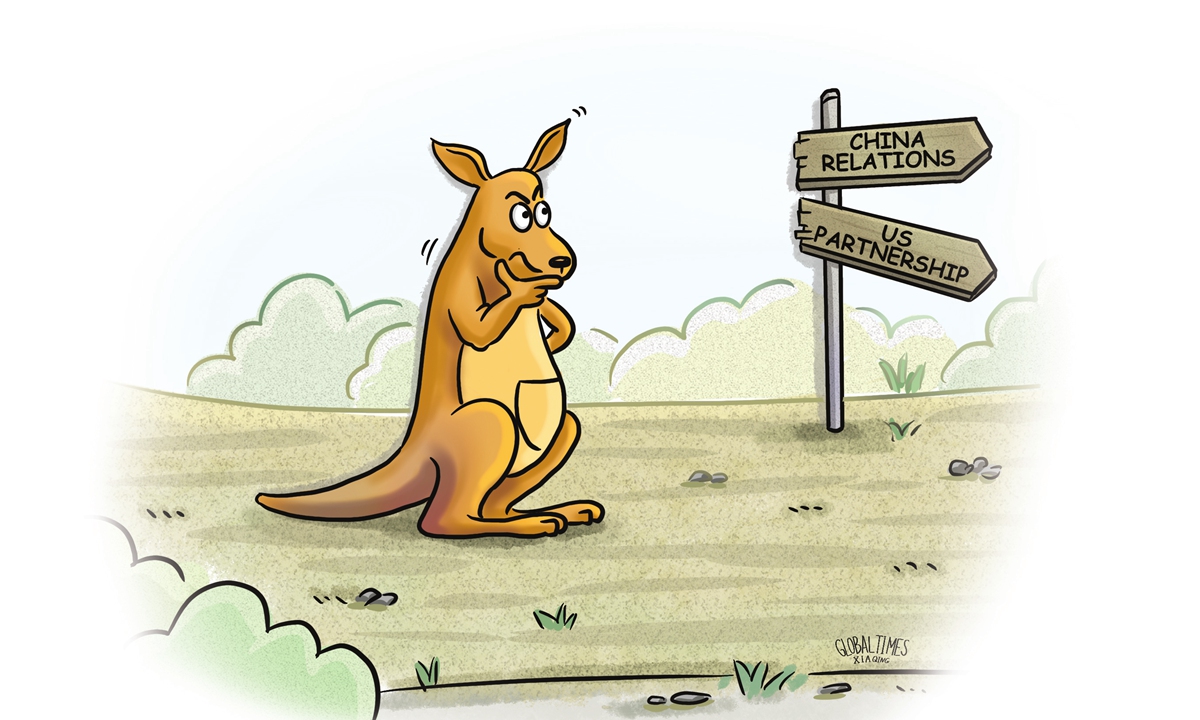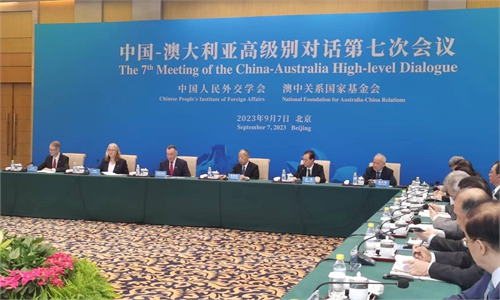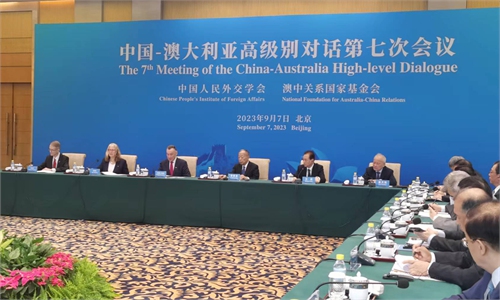Be vigilant against Australia’s further ‘coupling’ of China relations with US partnership

Illustration: Xia Qing/Global Times
Australian Prime Minister Anthony Albanese is on his first official visit to the US since he took office last year. This visit precedes his planned trip to China in November. In my opinion, the Australian leader wants to accomplish three goals during his US trip.
First, Australia hopes to become a sub-center of the US' Indo-Pacific Strategy, further enhancing its strategic position and value. Since assuming office, Albanese has pursued a diversified diplomatic policy. While upgrading its alliance with the US and resetting the relationship with China, the Albanese administration also actively deepens bilateral relations and expands strategic space across Asia and the South Pacific region. Australia has been promoting ties with India, Japan, Indonesia, South Korea and the Philippines in the Indo-Pacific region. As a strategic hub in this region, Australia has become a "sub-center" of the US' Indo-Pacific Strategy in technology research and development, military weapons production, critical minerals and supply chains.
Against the backdrop of the conflicts in Ukraine and Gaza, the military production capacity of the US and its European allies can't be converted into a wartime economy or meet the demands for weapons in multiple local wars at the same time. Therefore, the US encourages its key allies in the Indo-Pacific region, such as Australia and Japan, to produce more advanced military weapons. For example, the US has shared its nuclear-powered submarine technology and hypersonic missile technology and sold Tomahawk cruise missiles and other weapons to Australia under the AUKUS agreement. It also supports the establishment of Australia's autonomous weapons production system to enhance "integrated deterrence" and "joint deterrence" against China.
Second, the Albanese administration is trying to compensate for its political and economic setbacks at home by "scoring points" in diplomacy with the US and China. At present, due to the failure of the Voice referendum and the precarious domestic economy, Albanese's support has declined at home, so he urgently needs to "gain diplomatic points."
As early as the 2022 election, the Labor party promised to hold a referendum on the Voice for Indigenous Australians. The outcome of the referendum means the failure of the current Australian leader's policy on the Aboriginal people, which will have a great impact on his political prestige and the Labor government's governing position. To regain the Australian public's support lost by his inability to handle problems at home and improve the ruling status of the Labor government, Albanese needs to make a major breakthrough in foreign relations, especially with the US and China.
For his third goal, Albanese aims to enhance Australia's partnership with the US while maintaining relations with China. Albanese will visit China after his official visit to the US, which clearly indicates that Canberra still prioritizes its ties with Washington over its ties with Beijing.
Now, at the critical juncture of the strategic détente between Beijing and Washington and the rapidly warming China-Australia relations, Albanese's US visit is intended to obtain diplomatic assurances from Washington. It aims to make sure that Australia is kept informed of any progress in China-US relations, preventing the risk of being strategically abandoned by the US. In addition, Albanese intends to exchange and align its strategy with the US on China policy, resolve any strategic differences on China-related issues and ensure Australia and the US are strategically aligned in their approach toward China.
The author is an adjunct researcher at the Center for Australian Studies, China University of Mining and Technology. opinion@globaltimes.com.cn



